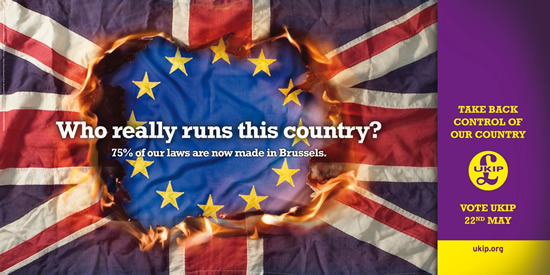Cultural Growing Pains – My Manchester visit continued
“I said I would never touch American soil,” my adviser Eva told me, laughing as we walked the streets surrounding the University of Manchester. Having grown up in Spain, she heard a great deal about US intervention in South America. In countries such as Guatemala, Nicaragua, and Cuba, the US government had supported rebel groups and sponsored coups in order to prevent what it considered to be “anti-American” activities. In the instance of Guatemala, the American interest involved was primarily the United Fruit Company, a powerful business that exported bananas while ensuring low wages for its workers. To Eva, then, the recent appearance of a Starbucks coffee shop in her home town in Spain represented the imperialistic, ultra-capitalist spirit of the US she had come to hate.
“But then,” she told me, “I got to know the people.”
Throughout my first week in Manchester, I was also getting to know the people–and, of course, the culture. When I told my family I was going to the UK, the predominant response concerned the food. Americans like to paint a grim picture of the English diet: grisly blood sausages follow the unthinkable breakfast of beans on toast, there’s gravy on everything and no hamburgers to be found.
Fashion is also important. Only tourists wear blue jeans or shorts, I was told. I had second thoughts about packing them.
So far my experience has been the complete opposite. I have eaten felafel, vegetarian pastries, Caribbean jerk chicken, kebabs with naan, and strange Chinese fruit called loquats. The streets of Manchester are filled with restaurants, shops, and places of worship that reflect countless cultures and identities. And yes, some people even wear blue jeans.
 A deceptively British-looking neighborhood found on my way to Chorlton
A deceptively British-looking neighborhood found on my way to Chorlton
Looking at the above neighborhood, it may not be obvious that Manchester is incredibly diverse. Taking one of the many side streets or back alleys, though, will often reveal some surprising finds. At one point, an Afro-Caribbean hair salon stands between Thibetan take-out and an Islamic cultural center. Pizzerias feature logos with typical Italian chefs above Arabic that reads “halal“. In fact, I often find my way home by looking for the New Testament Church at the beginning of my street or the Sunni mosque at the end of it. Statistics show that this influence of other cultures is growing steadily in the UK–the African minority has grown four-fold since 1991, and other groups such as the Chinese and Pakistani minorities have seen similar growths.
“I think it’s wonderful,” my landlady Kate told me. She was kind enough to clue me in on some of the city’s nearby offerings, most notably the Curry Mile, an entire mile of Indian restaurants. Visiting the famous mile with some of my American friends, we discovered the great bhaji of Al Bilal as well as some tiramisu ice cream in a nearby shop.
For some, though, this cultural diversity is unwanted.
“We’re getting a bit fed up with it,” I was told by an employee of the local ASDA (a popular supermarket chain).
I struck up conversation with him on the subject and found that, to him, immigration has become a burden. “The EU is letting everyone in,” he remarked. In fact, he had a great deal of disdain for Manchester, preferring instead the US. When I told him I was from Michigan, his face lit up. “‘sfrom Michigan that boy!”, I heard him tell his wife. To him, the US represents a move away from what is perceived as an economy overburdened with immigration.
As it turns out, he is not alone in his opinion.
Last week, I picked up a pamphlet that had been delivered in the mail. “Only UKIP will take back control,” it proclaimed. UKIP is the UK Independence Party, a political organization whose membership has recently grown to over 37,000 members. The “control” the pamphlet referred to was that of immigration restriction. According to UKIP politicians, the UK’s participation in the European Union has allowed for “open-door” immigration that they believe harms British wages and job outlooks. “Get your country back,” the brochure proudly demanded in bold font.

A UKIP billboard found in southern Manchester
Billboards like the above have been springing up across the country. The image decries waning UK influence in the face of a growing EU presence. However, this message may not have fared well in my neighborhood of residence. I recently found a billboard similar to the one above not far from the ASDA in Manchester, its UKIP message covered in bright orange graffiti. The anonymous artist had answered the ad’s question: “WE DO.” A few days later the ad was replaced entirely.
While it is clear that increasing influence from other cultures has caused some tension in the city, my experience in Manchester has been colored by the neon lights of Indian restaurants on Rusholme and the bright adornments of nearby mosques and temples. It’s hard to speculate what might happen if the message of UKIP is carried out in the UK, but it’s certain that cities like Manchester would look much, much different.
The idea that immigration creates the problematic Other instead of valuable cultural development is convenient and easily sold in a time of economic need, but I feel it’s counterproductive when I (and many others) have enjoyed the contributions of other cultures to such an exciting city. The cause of anti-immigration, though, gives people something to fight; it represents a sort of faceless, nameless threat that is as frightening as it is alien and unknown.
Maybe, as Eva found, it’s time for the citizens to get to know each other.


